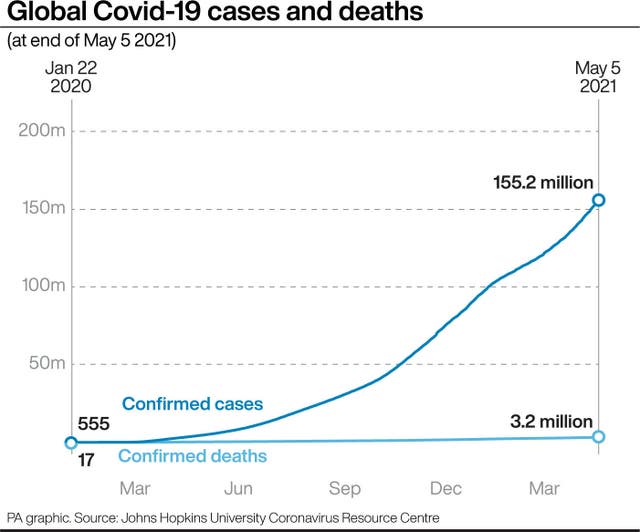Holidaymakers to find out quarantine-free destinations
Air fares to Portugal have soared ahead of the travel green list’s publication.

Holidaymakers will finally discover which destinations they can visit this summer without quarantining, with Portugal, Iceland and Malta among those expected to be on the travel green list.
Gibraltar and Israel could also make the cut when the list is published on Friday following weeks of speculation.
Quarantine and coronavirus testing requirements for people arriving in England once foreign holidays are permitted from May 17 will be based on a new traffic light system, with destinations placed on green, amber and red lists.
People arriving from a green location will not need to quarantine on their return and will have to take one post-arrival test.
Those returning from an amber list country must self-isolate for at least five days and take two tests.
The red list requires an 11-night stay in a quarantine hotel at a cost of £1,750 for solo travellers.
Assessments will be based on a range of factors, including the proportion of a country’s population that has been vaccinated, rates of infection, emerging new variants, and the country’s access to reliable scientific data and genomic sequencing.
Air fares to Portugal have already started to soar, with Ryanair charging £152 for a flight from Stansted to Lisbon on May 17, compared with £15 on May 16.
EasyJet is also charging £234 for a flight from Luton to the Algarve on May 17, but just £73 the following day.
Meanwhile, Tui, the UK’s largest holiday company, announced it will offer customers coronavirus tests for a fraction of standard prices.
The cheapest package – aimed at people returning from green destinations – will be available for just £20, and consist of a lateral flow test and PCR test.
PCR tests alone typically cost £120 each although several travel companies offer them for £60.

The latest weekly rate of new Covid-19 cases per 100,000 people is 21.2 in the UK, 26.5 in Portugal and 28.6 in Malta.
The most popular European destinations, such as Spain, Italy, France and Greece, are initially expected to be on the amber list, but could switch to green ahead of the peak summer holiday months.
Spain has a seven-day rate of 98.2 cases, while Greece is on 113.9.
No plans for the resumption of foreign holidays have been announced by the UK’s devolved administrations.
Meanwhile, a coronavirus strain first detected in India is likely to be elevated to a “variant of concern” after clusters were found in several areas of England, according to reports.
Cases of the variant have been found in schools, care homes and places of worship in the North West, London and the East Midlands, largely linked to travel, Channel 4 News reported.
The broadcaster said it is “highly likely” it will be declared a “variant of concern” on Friday, though cases remain relatively low.
Such a change can mean an escalation in response from Public Health England (PHE), including ordering surge testing.
The strain – B1617.2 – is one of three related variants first seen in India which have been detected in the UK and designated “under investigation” by PHE.
The others are B1617.1 and B1617.3.
According to the most recent data by PHE, there have been 202 confirmed cases of B1617.2 in the UK. Reports suggest there have been at least 48 clusters.
There have been 193 confirmed cases of the B1617.1 variant and five of the B1617.3 mutation.
Meanwhile, the Joint Committee on Vaccination and Immunisation (JCVI) is expected to recommended that people aged under 40 should be offered an alternative to the AstraZeneca jab following concerns about blood clots.
The policy currently applies to those under 30 but the age threshold could be raised after the Medicines and Healthcare products Regulatory Agency reported new figures on clots linked to the vaccine.





